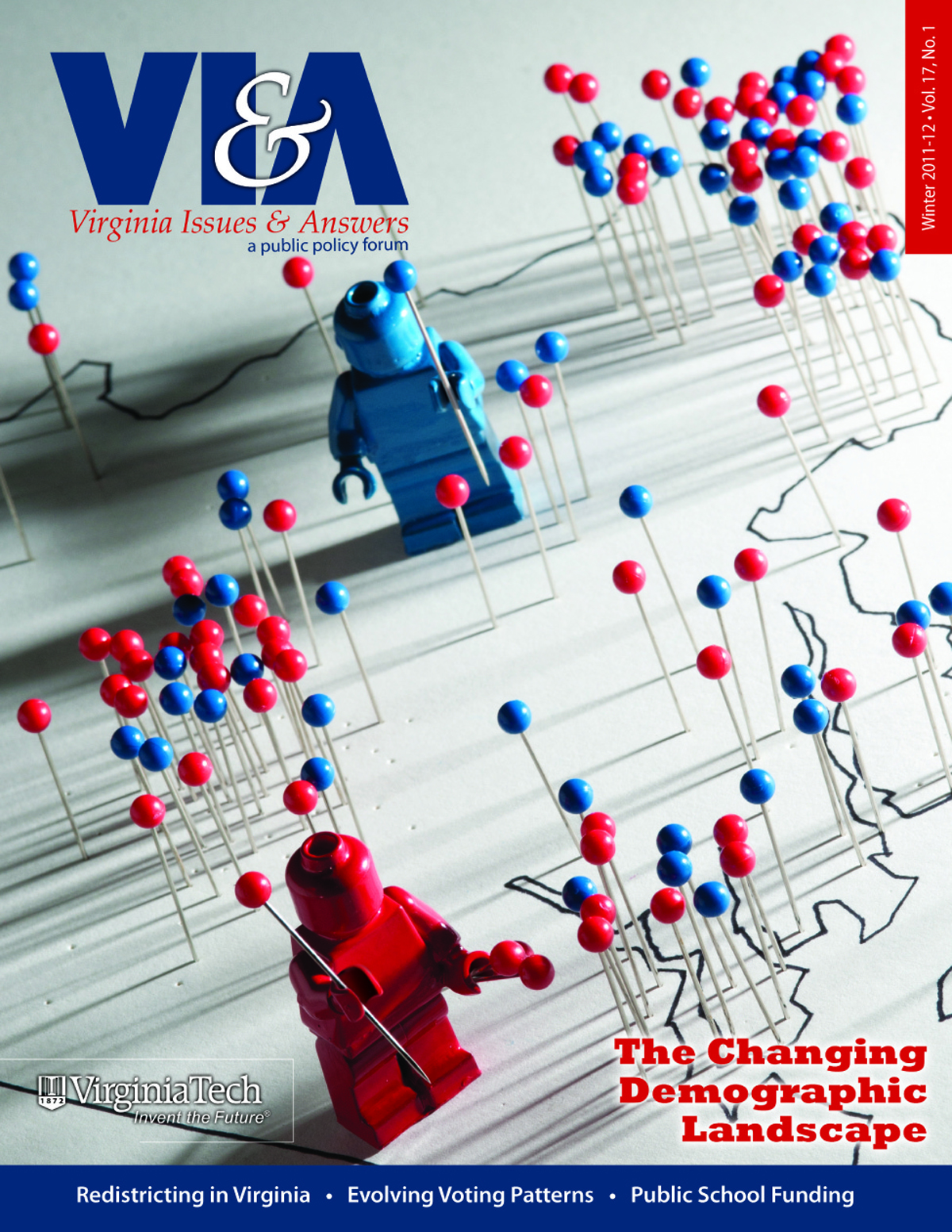Virginia Issues & Answers examines changing demographics, redistricting, voter behavior, and school funding in the commonwealth

Emerging from the 2010 census, demographic trends in Virginia — increasing diversity, rural-to-urban population redistribution, changing family composition, and more — hold myriad implications for policymakers.
The winter 2011-12 issue of Virginia Issues & Answers, a public policy forum published by Virginia Tech’s Office of University Relations, explores the impact of these changing demographics on redistricting, voter behavior, and school funding across the state.
In “Virginia’s Changing Demographic Landscape,” Lisa A. Sturtevant, of George Mason University, identifies shifts in the commonwealth’s populace exhibited in the 2010 census and considers how these demographic trends will shape future policy priorities in the state.
“Gridlock and Key: Redistricting in Virginia” by Jesse Tuel and Ashley Nicole Reynolds, both of Virginia Tech, speculates that political gridlock may have its roots in a redistricting process that arguably serves elected officials rather than voters. Despite the conflict, sources say that potential for reform exists.
In “Accessible Redistricting,” Quentin Kidd, of Christopher Newport University, discusses a student competition that demonstrated how redistricting can be a transparent process, open and accessible to anyone.
Craig Leonard Brians and Logan Vidal, both of Virginia Tech, maintain in “Demographic Change and Evolving Voting Patterns in Virginia” that increased voter turnout and Barack Obama’s victory in Virginia in the 2008 presidential election are tied to key changes in the demographic environment and election-specific political conditions, including voter registration laws.
Finally, in “Challenges Confronting Public Schools in the Commonwealth,” Richard G. Salmon, of Virginia Tech, examines three of the most difficult hurdles facing Virginia’s public schools: demographic trends, disparate and inadequate resources, and a concerted attack on the institution of public education.
Virginia Issues & Answers is available online. Request hard copies by emailing Jesse Tuel, managing editor.
Dedicated to its motto, Ut Prosim (That I May Serve), Virginia Tech takes a hands-on, engaging approach to education, preparing scholars to be leaders in their fields and communities. As the commonwealth’s most comprehensive university and its leading research institution, Virginia Tech offers 215 undergraduate and graduate degree programs to more than 30,000 students and manages a research portfolio of nearly $400 million. The university fulfills its land-grant mission of transforming knowledge to practice through technological leadership and by fueling economic growth and job creation locally, regionally, and across Virginia.




